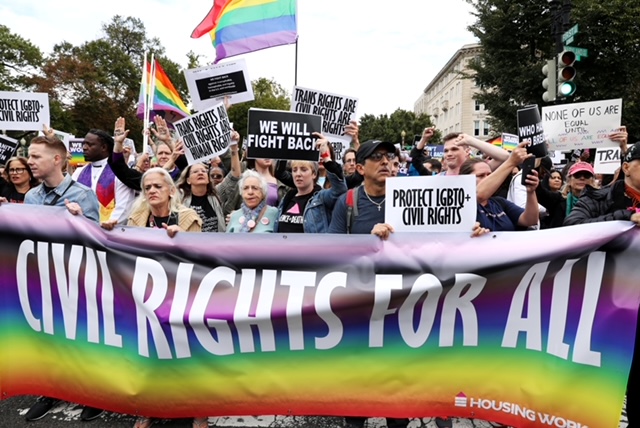
WINDSOR TERRACE — President Joe Biden says the proposed Equality Act would bring long-overdue protections against discrimination to LGBTQ+ communities. U.S. Catholic bishops, conversely, believe the act would trample on religious freedoms.
If passed by Congress, it would dramatically expand the Civil Rights Act of 1964 to ban discrimination based on sexual orientation or gender identity in numerous settings. The bill awaits action in the U.S. Senate after the House approved it in February.
Americans who care about religious freedom and all people’s rights could be conflicted on how to view the Act.
But to make a case for religious freedom, the Archdiocese of New York and several other Catholic dioceses hosted a webinar on March 22 titled “The Equality Act and What it Means for Catholics.”
The moderator was Ryan Anderson, president of the Ethics and Public Policy Center. He explained the Civil Rights Act of 1964 banned discrimination based on race. The Equality Act would add sexual orientation and gender identity.
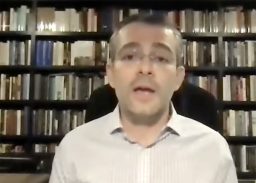
“The problem with the Equality Act is not that we’re in favor of unjust discrimination,” Anderson said. “The most important truth is that each and every one of us is made in the image and likeness of God. We’re subjects of profound dignity and intrinsic worth.
“We need to be able to affirm in law and public policy that everyone is made in God’s image and likeness. And, therefore, unjust discrimination is wrong.”
But, he added, “We’re also created male and female, and male and female are created for each other in marriage. Our bodily reality as male or female isn’t discriminatory, and the truth about marriage isn’t discriminatory.”
Some of the other speakers were: Robert Vega, a senior policy advisor for the U.S. Conference of Catholic Bishops; Mary Rice Hasson, president of the Catholic Women’s Forum; and Susan Muskett, president of Pro-Family Women.
Vega noted that in 2020 alone, Catholic Charities helped 13 million people with “disaster relief, shelter, food, wellness, including addiction recovery, asylum, employment readiness, and more.”
“In all this,” he added, “I must stress Catholic organizations serve all beneficiaries and do not deny or discriminate against anyone for identifying as LGBT.
“The Equality Act, however, would mandate how we serve others in ways that force us to either violate our faith or shut down, both of which are worse for the beneficiaries.”
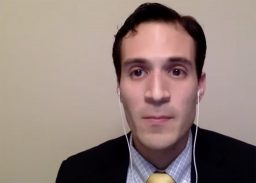
Vega said part of the law covers “public accommodations,” including hospitals, gyms, wedding vendors, shelters, and possibly churches, religious funeral homes, and private schools.
“Now,” Vega said, “if this were understood to simply protect someone from being denied service at a restaurant or hospital because they identify as LGBT, that might be one thing.”
But, he added, the bill’s language “does not limit its reach to those with gender dysphoria, but allows anyone else to self-identify in any way, at any time.”
“So, in terms of effects,” he said, “Catholic foster care and adoption, for example, would be forced to place with same-sex couples — which violates children’s rights to a married mother and father — or be shut down.
“Shelters, which often protect particularly vulnerable women, would be forced to make them share sleeping and showering quarters with biological men.”
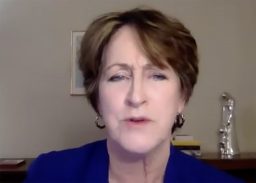
Hasson said the act could give a biological male the right to compete in and dominate female sports if he identifies as a girl or a woman.
“The average person knows that there are striking differences in size, strength, and speed between most males and females, at least from puberty on,” Hasson said. “And we intuitively know it’s just not fair to let males identify their way into female sports because they will dominate and they will deprive girls of the opportunities that come with winning: the self-discipline, the achievement, the scholarships, even just making the team.”
Muskett said she believed the most severe impacts of the Equality Act could be on children in their schools.
“Let’s begin with the school bathrooms,” she said. “The Equality Act will require federally funded public schools, which is all public schools, to allow students access to restrooms, locker rooms, and showers, based on the student’s asserted gender identity.
“And a school cannot prevent a transgender student from accessing these facilities, so long as he or she asserts a gender identity that is compatible with the sex of that segregated area.”
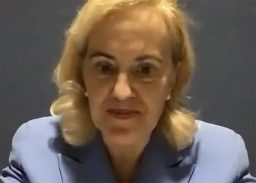
This possibility could “compromise the privacy of students, and could create discord in the school community,” Muskett said.
The U.S. Conference of Catholic Bishops has warned that the act can potentially include an abortion mandate. According to an assessment by webinar speaker Gabrielle Girgis, the bishops are right to be concerned. She is a postdoctoral fellow at the Ethics and Public Policy Center.
She explained that the law as written would mandate healthcare providers to “treat the decision to end a pregnancy exactly the same as the decision to sustain a pregnancy.”
Thus, healthcare workers could be sued under the Equality Act for pregnancy discrimination if they decline “to perform or support an abortion in any way, which is a reasonable judgment of conscience and has been previously protected in the law,” Girgis said.
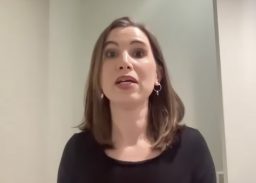
She added that the act would also “effectively repeal the Hyde Amendment,” which prohibits federal taxpayer funding of abortions.
“Other federal anti-discrimination laws have amendments clarifying that nondiscrimination does not mean that you have to cover, provide, or participate in abortions,” Girgis said. “But the Equality Act, explicitly, noticeably lacks any amendment like that.”
Consequently, she said, a repeal looms for the Hyde Amendment.
The bill passed the House by a vote of 224-206, with 221 Democrats and three Republicans voting for it.
Other hosts of the webinar included the Archdiocese of Los Angeles, the Dioceses of Arlington, Va. and Green Bay, Wis., and the Catholic Conferences of Colorado and Virginia.
Those who missed the webinar’s live broadcast can still view it by clicking here.
